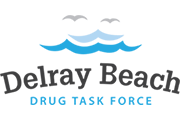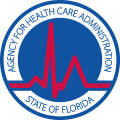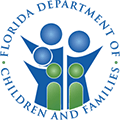When something is wrong, we want a diagnosis. But when it comes to mental health concerns, a diagnosis isn’t always cut and dry.
Depression, anxiety and other mental health disorders can be complicated by substance abuse, making diagnosis and treatment even more complex. For example, if a person is depressed, it can be difficult to determine if they are suffering from bipolar disorder, are under the influence of depressant drugs or both.
Specialized dual diagnosis treatment is often necessary for an accurate diagnosis and long-term recovery. The mental health disorder and substance abuse disorder are inextricably linked, which means both conditions must be treated simultaneously by a multidisciplinary team of dual disorder experts.
“As patients spend more days sober, their minds clear and their diagnosis becomes more apparent,” said Erin Hains, LMHC, a therapist at Wellness Resource Center, an addiction and dual diagnosis treatment program in Florida.
Slower Progress in Treatment
Because dual disorders are complex and negative patterns are often ingrained, patients may need more time to get stabilized and make progress in treatment than those suffering from either substance abuse or a mental health disorder alone.
“It can be difficult for a patient to get motivated to focus on recovery when they’re dealing with a mental illness,” said Hains. “In the past, drugs and alcohol may have been the only way they knew to get relief.”
When progress is slow, patients may get frustrated or discouraged, which diminishes their motivation to stay sober and committed to the treatment process.
Reluctance to Take Medication
In many cases, medication is needed to treat the symptoms of a mental health disorder so that the work of addiction recovery can begin. If a patient isn’t stable from a mental health perspective, they may not be able to invest in therapy, 12-Step meetings and other recovery work.
“Some patients are resistant to taking their medication because they like the manic side of bipolar disorder or the delusions that go along with schizophrenia,” noted Hains.
In these cases, the therapists at Wellness Resource Center educate the patient about the importance of medication and may call upon the patient’s family and peers to offer insights on the need for strict adherence to a medication regimen.
The Threat of Relapse
Relapse is common for recovering addicts, and even more common for those with dual disorders. One of the common paths to relapse occurs when patients are feeling good and stable, so they decide to stop taking their medications. When their mental health symptoms return, such as depression or anxiety, they go back to using drugs and alcohol in an attempt to self-medicate.
Because of the persistent threat of relapse, aftercare is essential for individuals with dual disorders. Patients need to continue to see a psychiatrist and take their medications, and often benefit from outpatient treatment, 12-Step meetings and ongoing therapy.
Powerful Interventions for Treating Dual Diagnosis
Certain approaches are more effective than others in treating dual diagnosis. Because different people have different treatment needs, a program that offers a variety of interventions will best serve the diverse needs of dual diagnosis patients.
To Hains, one of the most vital aspects of dual disorder treatment at Wellness Resource Center is the wide array of group therapies that are offered. In addition to life skills training, trauma resolution groups, expressive art therapy, spirituality groups and many other groups, the 12 Steps are infused into every aspect of treatment at Wellness.
Education about substance abuse and mental health is another important component of dual diagnosis treatment. Patients at Wellness Resource Center meet regularly with therapists specially trained in addiction and mental health, as well as a psychiatrist who is thoroughly involved in the treatment process.
Wellness Resource Center utilizes an integrated, collaborative team approach, in which the therapists, psychiatrist, clinical director and other staff are in close communication each week. Patients get different perspectives from a number of clinicians who use diverse approaches with each patient.
“We meet patients wherever they are and use the approach that is most helpful to them at the time,” said Hains. “Because we offer so many types of therapies and our staff has expertise in multiple areas, we offer something that resonates with everyone.”
Staying connected with patients after formal treatment ends is a priority for the staff at Wellness Resource Center. Alumni can participate in a free aftercare support group once a week and monthly alumni meetings, and are encouraged to come back to Wellness to share their stories and hope with current patients.
Because the therapists have nurtured strong, trusting relationships with their patients, the patients are more committed to following the continuing care recommendations, and to come back to treatment for stabilization if they do relapse.
Hope for a Better Life
Despite the challenges of treating dual diagnosis, recovery is possible. With integrated, multidisciplinary treatment, individuals with dual disorders can begin to understand how their mental health disorder and addiction interact. As patients get sober and start enjoying a healthy lifestyle, addressing underlying issues in therapy and developing new coping skills, they find that they can manage their symptoms and function within society.
“It’s important for people suffering with dual diagnosis to know their diagnosis doesn’t define them,” said Hains. “A better life is possible.”











